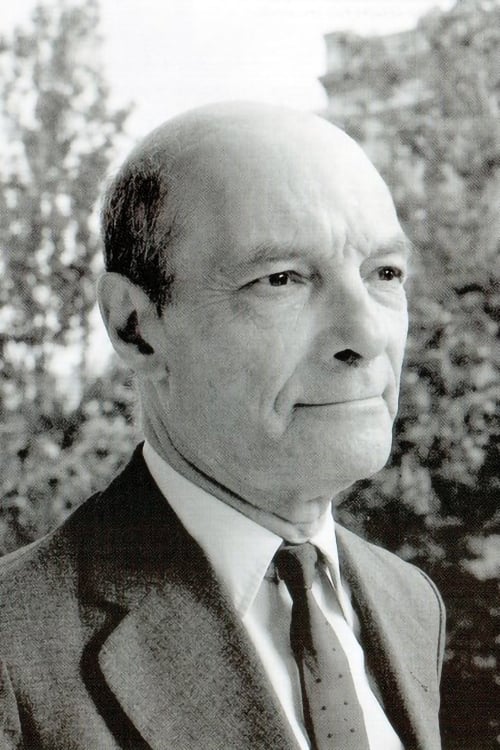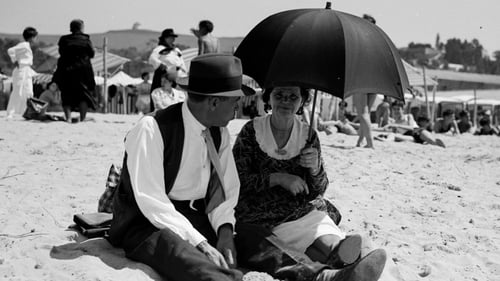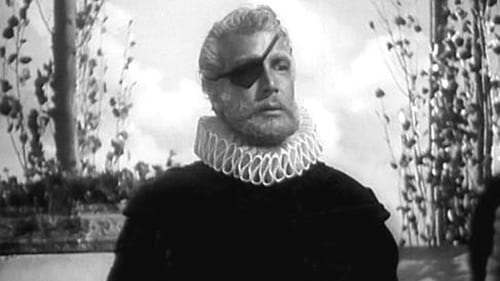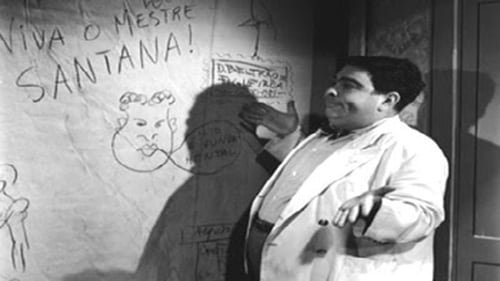
António Lopes Ribeiro
出生 : 1908-04-16, Lisbon, Portugal
死亡 : 1995-04-14
略歴
Director, journalist, and producer, António Lopes Ribeiro (1908-1995) was a central name in the history of Portuguese cinema in the first half of the 20th century. Movie critic since the late 1920s, he supported the European cinematographic avant-gardes and the aesthetical and technical renewal of Portuguese cinema. He directed his first film, Bailando ao sol, in 1928 and took part in the shooting of J. Leitão de Barros film’s Nazaré, praia de pescadores (1929), Lisboa, Crónica Anedótica and Maria do Mar (1930). Shortly before that, he undertook a long journey to the great movie studios of Paris, Berlin and Moscow, where he became up to speed with the most recent techniques and tendencies, and where he also met Clair, Renoir, Lang, Pabst, Eisenstein and Vertov. His first sound film was Gado Bravo (1934), made with several Jewish film actors and technicians that had just escaped from Hitler’s Germany. Ribeiro’s first big propaganda film for the New State was A Revolução de Maio (The May Revolution, 1937), whose script he wrote with António Ferro, the founder and director of the Secretariado da Propaganda Nacional (National Propaganda Office/SPN). The following year, he accompanied the head of the state, President Óscar Carmona, in a trip to the Portuguese colonies in Africa, shooting topical footage that would be used in several documentaries, as well as in his second propaganda feature film, Feitiço do Império (1940). Also in 1938, Ribeiro began producing for SPN the New State’s first newsreel, Jornal Português, which would last until 1951. With his production and distribution company Sociedade Portuguesa de Actualidades Cinematográficas (SPAC), he produced and directed many propaganda documentaries commissioned by the New State, thus earning the reputation of the regime’s official filmmaker and reinforcing his influence in the State-sponsored Sindicato Nacional dos Profissionais de Cinema (National Union of Cinema Professionals). In 1941, he founded Produções António Lopes Ribeiro, a production company that released famous comedies such as O Pai Tirano (1941), O Pátio das Cantigas (1942, directed by his brother, Francisco Ribeiro), or A Vizinha do Lado (1945); Manoel de Oliveira’s first feature film, Aniki-Bóbó (1942); or historical dramas such as Amor de Perdição (1943), Frei Luis de Sousa (1950) and O Primo Basílio (1959). Until 1974, Ribeiro produced or directed dozens of propaganda documentaries and newsreels. Between 1957 and 1974 he was also the author and host of a very popular TV show about the history of cinema titled “O Museu do Cinema” (“The Cinema Museum”).

Original Film Writer
This remake of the 1940 film with the same name tells the story of a theatre company, its men and women in love, mistakes and misunderstandings. Chico loves Tatão, who is courted by Artur. Graça loves Chico, but doesn't know he loves Tatão. Santana writes a play for the Grandelinhas that will serve as a guide to Chico passion and convince Tatão that he is a rich count. The play is then staged and they all end up in prison.

Self (archive footage)
Images and sounds expose the duality of Portugal during the days of WW2: a peaceful, god-loving, rural country, providing an escape route for over one hundred thousand European refugees to the Americas; and a political and cultural elite that disguised their Nazi inclinations just enough to play its neutral role in international politics.

Screenplay
Jorge, a successful engineer and employee of a ministry and Luísa, a romantic and dreamy girl, star as the typical bourgeois couple of the Lisbon society of the 19th century.

Director
Jorge, a successful engineer and employee of a ministry and Luísa, a romantic and dreamy girl, star as the typical bourgeois couple of the Lisbon society of the 19th century.

Director
The film documents the official visit of the President of the Portuguese Republic, Craveiro Lopes, to Brazil, and his meeting with the President of the Republic of Brazil, Juscelino Kubitschek, in June 20, 1957.

Director
Evocation of Salazar's birth, his passage through Coimbra and salient facts of his political life.

Production Design
The tragedy of a woman who - after seven years of vain searches - gave up hope of finding her husband, a knight lost in battle in Marroc with Sebastião, king of Portugal. She marries, has a daughter by her second husband, and endures the silent reproach of an aid, Telmo Pais, the only who kept his hope that his master shall return, as well as the king... One day, a mysterious pilgrim arrives at the mansion.

Editor
The tragedy of a woman who - after seven years of vain searches - gave up hope of finding her husband, a knight lost in battle in Marroc with Sebastião, king of Portugal. She marries, has a daughter by her second husband, and endures the silent reproach of an aid, Telmo Pais, the only who kept his hope that his master shall return, as well as the king... One day, a mysterious pilgrim arrives at the mansion.

Screenplay
The tragedy of a woman who - after seven years of vain searches - gave up hope of finding her husband, a knight lost in battle in Marroc with Sebastião, king of Portugal. She marries, has a daughter by her second husband, and endures the silent reproach of an aid, Telmo Pais, the only who kept his hope that his master shall return, as well as the king... One day, a mysterious pilgrim arrives at the mansion.

Director
The tragedy of a woman who - after seven years of vain searches - gave up hope of finding her husband, a knight lost in battle in Marroc with Sebastião, king of Portugal. She marries, has a daughter by her second husband, and endures the silent reproach of an aid, Telmo Pais, the only who kept his hope that his master shall return, as well as the king... One day, a mysterious pilgrim arrives at the mansion.

Narrator
Recent population growth in the capital leads to an ambitious development plan, involving public and private initiative as documented here, pinpointing over 60 locations (streets, roads, parks, schools) being modernized or built anew. The narrative and soundtrack are grandiloquent, in the propaganda style required by the Producer (the Municipal Council of Lisbon, then directly dependent of the national government), but the images and data are now of historical relevance.

Writer
Recent population growth in the capital leads to an ambitious development plan, involving public and private initiative as documented here, pinpointing over 60 locations (streets, roads, parks, schools) being modernized or built anew. The narrative and soundtrack are grandiloquent, in the propaganda style required by the Producer (the Municipal Council of Lisbon, then directly dependent of the national government), but the images and data are now of historical relevance.

Director
Recent population growth in the capital leads to an ambitious development plan, involving public and private initiative as documented here, pinpointing over 60 locations (streets, roads, parks, schools) being modernized or built anew. The narrative and soundtrack are grandiloquent, in the propaganda style required by the Producer (the Municipal Council of Lisbon, then directly dependent of the national government), but the images and data are now of historical relevance.

Director
Commemorative procession celebrating the eighth centenary of the inbreak of Lisbon from the Moors in 1147 by the forces of D. Afonso Henriques with the help of the Crusaders en route to the Holy Land.

Producer
The adventurous life of Portugal's epic poet, Luis de Camões.

Writer
The adventurous life of Portugal's epic poet, Luis de Camões.

Director
This documentary, produced in 1946 on the occasion of the half-century of Portuguese presence in Guinea-Bissau, reveals interesting contradictions. The activities and customs of the Guineans are filmed with a lot of attention and sometimes of proximity. Their resistance to colonization is even evoked, cleverly recovered by the comment which claims that they are all Portuguese. But the colonists are very few present: some dressed in a sparkling white costume and two very poor. The Africans, proud, talented, imposing, occupy the whole film.

Screenplay
The story of how the conflicting relationship of Eduardo and vaudeville actress Isabel is affected by the passion he feels for their neighbor, Mariana, a young overprotected, and the unexpected visit of his uncle Plácido, a moral teacher.

Director
The story of how the conflicting relationship of Eduardo and vaudeville actress Isabel is affected by the passion he feels for their neighbor, Mariana, a young overprotected, and the unexpected visit of his uncle Plácido, a moral teacher.

Director
Interesting, almost ethnographic, sequences on peoples of southern and central Angola, show the diversity of their customs and the richness of their cultures. The images often of quality are not devoid of a dominant look that frames them as exotic. The Euro-centric commentary on the exaltation of “lusitanity” is rather paternalistic and even contemptuous: “All these peoples are Portuguese and love Portugal, what a wonderful destiny it is for this country that came to civilize them and lead them on the paths of spirituality after having opened the roads of the world.”

Production Design
The fatalism caught up and the amorous tragedy between Teresa de Albuquerque and Simão Botelho, who survives the intolerant litigation of her noble families.

Director
The fatalism caught up and the amorous tragedy between Teresa de Albuquerque and Simão Botelho, who survives the intolerant litigation of her noble families.

Producer
Two schoolboys, Carlitos and Eduardo, fight for the affection of a girl, Terezhina.

Dialogue
Two schoolboys, Carlitos and Eduardo, fight for the affection of a girl, Terezhina.

Producer
A portrait of the relations between neighbours in a Lisbon courtyard. A story made of small episodes of humour, friendship, rivalry, love.

Dialogue
A portrait of the relations between neighbours in a Lisbon courtyard. A story made of small episodes of humour, friendship, rivalry, love.

Writer
A portrait of the relations between neighbours in a Lisbon courtyard. A story made of small episodes of humour, friendship, rivalry, love.

Production Design
While rehearsing the annual play, a clerk tries to regain the attention of his beloved, in a comedy of equivoques.

Producer
While rehearsing the annual play, a clerk tries to regain the attention of his beloved, in a comedy of equivoques.

Director
While rehearsing the annual play, a clerk tries to regain the attention of his beloved, in a comedy of equivoques.

Writer
While rehearsing the annual play, a clerk tries to regain the attention of his beloved, in a comedy of equivoques.

Production Design
Luís immigrated to the USA and intends to become an American. But after his father invites him on a journey to the Portuguese territories in Africa, he will find true love, and also learn to value his country and its colonial grandeur.

Editor
Luís immigrated to the USA and intends to become an American. But after his father invites him on a journey to the Portuguese territories in Africa, he will find true love, and also learn to value his country and its colonial grandeur.

Writer
Luís immigrated to the USA and intends to become an American. But after his father invites him on a journey to the Portuguese territories in Africa, he will find true love, and also learn to value his country and its colonial grandeur.

Director
Luís immigrated to the USA and intends to become an American. But after his father invites him on a journey to the Portuguese territories in Africa, he will find true love, and also learn to value his country and its colonial grandeur.

Writer
The most well-known fascist propaganda film in Portugal. A communist man falls in love with a woman of Salazarian beliefs and changes his way of looking at things.

Director
The most well-known fascist propaganda film in Portugal. A communist man falls in love with a woman of Salazarian beliefs and changes his way of looking at things.

Director
A love triangle set in Lisbon between German singer Nina, bullfighter Garrido and local girl Branca.

Screenplay
Falacha is the captain of a fishing boat of Nazaré who lost part of his men in a shipwreck. Among them was the husband of Aunt Aurélia, who holds Falacha responsible for this tragedy. A few years later, Maria, Falacha's daughter, falls in love with Manuel, Aurélia's son, which makes the two young people the new Romeo and Juliet. As for Falacha, he succumbs to social pressure and commits suicide...

Assistant Director
Falacha is the captain of a fishing boat of Nazaré who lost part of his men in a shipwreck. Among them was the husband of Aunt Aurélia, who holds Falacha responsible for this tragedy. A few years later, Maria, Falacha's daughter, falls in love with Manuel, Aurélia's son, which makes the two young people the new Romeo and Juliet. As for Falacha, he succumbs to social pressure and commits suicide...

Editor
Caleidoscope of documentary-like scenes and re-enacted episodes of a day in the life of a large port town - Lisbon, from the old district around Saint George's Castle down to the docks and the 'Sagres' on the Tagus river, to the new commercial districts.

Assistant Director
Caleidoscope of documentary-like scenes and re-enacted episodes of a day in the life of a large port town - Lisbon, from the old district around Saint George's Castle down to the docks and the 'Sagres' on the Tagus river, to the new commercial districts.

Assistant Art Director
The first Portuguese documentary. A remarkable look at the lives of the working people of Nazaré, a fishing town in Western Portugal.










